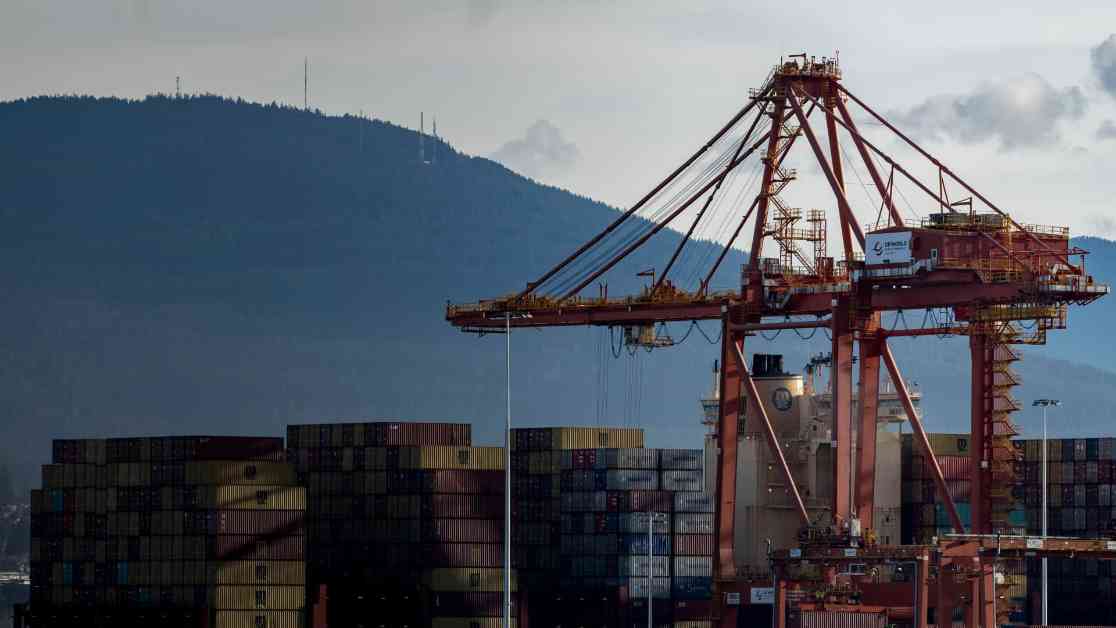China Strikes Back: Retaliatory Tariffs Imposed on Canadian Goods
In a dramatic turn of events, China has fired back at Canada with retaliatory tariffs on a range of agricultural products. This tit-for-tat exchange comes hot on the heels of Ottawa’s decision to impose import duties on Chinese electric vehicles, steel, and aluminum.
The latest salvo from Beijing targets Canadian exports, including rapeseed oil, oil cakes, peas, aquatic products, and pork. A hefty 100% tariff will be slapped on the first three items, while a 25% levy will apply to the latter two. These measures are set to take effect on March 20, as announced by China’s Customs Tariff Commission of the State Council.
The escalating trade tensions between the two countries are part of a broader global trade war that has been brewing for months. With the U.S., China, Canada, and Mexico all announcing tariffs on various products, the landscape of international trade is becoming increasingly volatile.
Canada’s decision to impose steep import tariffs on Chinese-made electric vehicles last year was met with swift retaliation. The move, which mirrored actions taken by the U.S. and the European Union, was driven by concerns about unfair competition. In addition to the tariffs on EVs, Ottawa also slapped a 25% duty on steel and aluminum imports from China.
In response to Canada’s actions, China’s customs authorities issued a scathing statement, accusing Ottawa of flouting international trade rules and engaging in protectionist practices. The statement, translated via Google, decried Canada’s tariffs as discriminatory and harmful to the economic relationship between the two countries.
Expert Insights on Trade War Ramifications
As tensions continue to ratchet up between China and Canada, experts warn of the broader implications of this trade war. Dr. Elizabeth Chen, an economist specializing in international trade, notes that retaliatory tariffs can have far-reaching consequences beyond the immediate impact on specific industries.
“Trade wars have a domino effect, affecting not just the countries involved but also global supply chains and consumer prices,” Dr. Chen explains. “Consumers may end up bearing the brunt of these tariffs through higher prices on everyday goods, while businesses may struggle to navigate the uncertain terrain of international trade.”
Impact on Canadian Farmers and Businesses
For Canadian farmers and businesses that rely on exports to China, the imposition of retaliatory tariffs poses a significant challenge. John Thompson, a third-generation pea farmer in Saskatchewan, shares his concerns about the impact of the tariffs on his livelihood.
“As a farmer, I depend on international markets to sell my products and support my family,” Thompson says. “The uncertainty created by these tariffs makes it difficult to plan for the future and maintain the stability of my business.”
In addition to agricultural producers, Canadian businesses that export aquatic products and pork are bracing for the financial hit from the new tariffs. The ripple effects of this trade dispute are likely to be felt across various sectors of the Canadian economy, underscoring the interconnectedness of global trade.
As the trade war between China and Canada intensifies, the stakes are high for both countries. The repercussions of these tariffs extend far beyond the realm of international trade, impacting businesses, consumers, and economies on a global scale. The path forward remains uncertain, with negotiations and diplomatic efforts crucial to finding a resolution that benefits all parties involved.
























